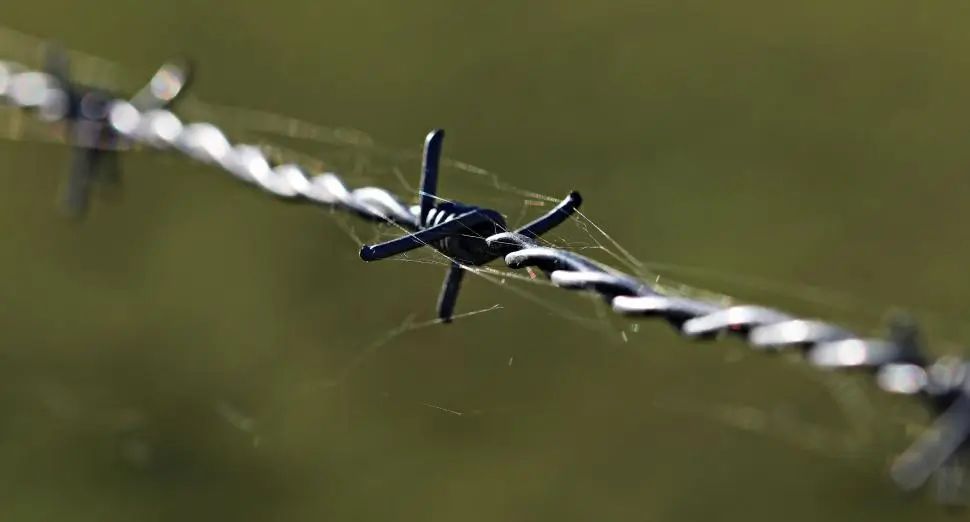Can Barbed Wire Keep Your Goats Safe? Let’s Find Out!
If you have goats, you know how tricky it can be to keep them in one place. They’re clever and love to explore, so you need a strong fence. That’s where the big question comes in: Can Barbed Wire Keep Your Goats Safe? This might sound simple, but it’s a big deal for anyone with goats.
In this guide, we’re going to look at different kinds of fences for goats, especially barbed wire. We’ll talk about what works well and what doesn’t. It’s not just about keeping your goats in; it’s also about keeping them safe and happy. We’ve done the research and want to share what we’ve learned with you.
So, if you’re wondering about the best way to fence your goats, stick with us. We’ll go through the best options out there and help you figure out if barbed wire is the right choice for your goats.
Is it a good option to use the barbed wire fence for goats?

When it comes to fencing for goats, barbed wire often comes up as an option. However, it’s not the most ideal choice.
Goats are curious and active animals that like to push against fences, and barbed wire can potentially cause injuries. Since goats have a tendency to rub and scratch themselves against fences, barbed wire can lead to cuts and scrapes, which might lead to infections
How Many Strands Of Barbed Wire For Goats
If you’re considering barbed wire, it’s essential to use multiple strands to increase the fence’s effectiveness.
Generally, a minimum of four to six strands is recommended, spaced closely enough to prevent goats from squeezing through or getting their heads stuck.
Even with multiple strands, there’s still a risk of injury, so it’s crucial to regularly inspect the fence for any damage or loose wires.
What kind of fence is best for goats?
The best fences for goats are those that offer security without harming them.
Electric fences are a popular choice as they provide a psychological barrier; goats learn to avoid the fence after a few encounters with the mild electric shock.
Woven wire fences are also great as they prevent goats from sticking their heads through the wires.
High tensile smooth wire is another good option, offering durability and less risk of injury compared to barbed wire.
Welded wire, with its rigid structure, can also be effective, especially for smaller breeds or kids.
Following is the detailed guide which fence is a good option to go with it.
- Electric Fence: This type of fence uses a small electric shock to teach goats to stay away. It’s like a quick, harmless zap that reminds them not to touch the fence. Electric fences are great because they’re easy to set up and move around if needed. They’re really effective for goats, who learn quickly to keep their distance after a couple of zaps.
- Woven Wire Fence: Think of this as a strong net made of wire. It’s designed with small enough gaps so that goats can’t push their heads through or get stuck. This type of fence is very sturdy and great for keeping goats safely inside. It’s a bit more permanent than an electric fence, so it’s a good choice if you’re not planning to move your fence around.
- High Tensile Smooth Wire: This is a fence made of strong, smooth wires stretched tight between posts. It doesn’t have barbs like barbed wire, so it’s safer for goats who might try to push against it. The wires are placed close enough together to keep goats in without hurting them. This fence type is durable and lasts a long time, but it might not be the best choice if your goats like to climb, as they could potentially get over it.
- Welded Wire: This fence is like a grid of wire welded together at every intersection. It’s very strong and good at keeping goats contained. The grid is usually made of smaller squares, so goats can’t stick their heads through. This type of fence is more rigid and doesn’t flex much, so it’s a good option if you have goats that are especially rowdy or like to push against the fence a lot.
Each type of fence has its own benefits, so the best choice really depends on your specific situation, like how much space you have, how many goats you’re fencing in, and whether you need to move the fence in the future.
Is barbed wire fence good for sheep?
Like goats, sheep are also prone to injuries from barbed wire. They have wool that can get caught in the barbs, leading to entanglement and potential harm.
For sheep, smooth wire, electric, or woven wire fences are better choices.
Will goats stay without a fence?
Goats really need a fence to stay safe. Without a fence, they might wander off because they are very curious and like to explore.
If they wander, they could get lost or get into dangerous places like roads. They could also get hurt by animals like coyotes. Plus, without a fence, goats might go into other people’s yards and eat plants or cause damage.
So, it’s really important to have a good fence to keep goats where they should be and keep them safe.
How do I keep goats from escaping my fence?
To prevent escapes, the fence should be at least 4 to 5 feet tall as goats are good jumpers. Make sure there are no gaps or weak spots.
Regularly check the fence for any damage or areas where the goats might be trying to escape. If using an electric fence, ensure it’s always functioning correctly.
Do goats climb fences?
Yes, goats can climb fences, especially if they’re motivated enough. They might use anything nearby as a stepping stone to get over the fence.
Therefore, it’s essential to keep the area around the fence clear of objects that goats could use to climb.
Conclusion
In conclusion, while barbed wire can be used for goats, it’s not the best option due to the risk of injury. There are safer and more effective alternatives available that can keep your goats secure without harming them. Regular maintenance and proper installation are key to ensuring whatever fence you choose serves its purpose effectively.

